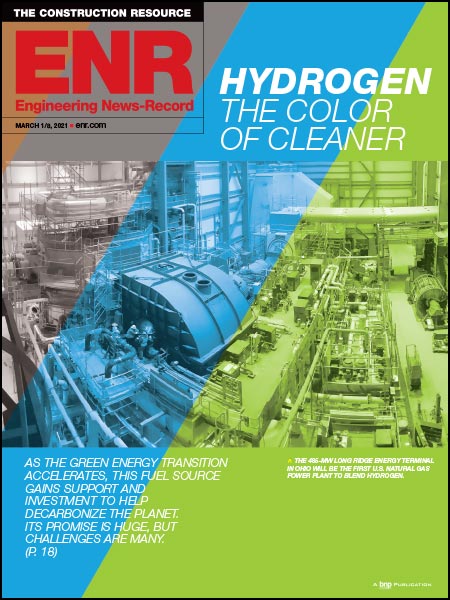Acquisitions in Brazil and South Africa in April by London-based design firm Mott MacDonald Group are raising the company's profile in two of the world's fastest-growing regions.
Growth, either bought or organic, is important for Mott, which is still several thousand staff below the critical mass required to continue competing globally in the long term, believes Chairman Keith Howells.
 |
| Howells |
Mott has no realistic prospect of growing to match the scale of big global players, such as AECOM and CH2M Hill, concedes Howells. “But you need to [be] big enough to stay in touch,” he notes.
Staying in touch means continuing to prequalify for international bidding lists, which, he believes, will require Mott to employ about 20,000 to 25,000 staff.
“I think we can get there. … We doubled our size in five years when the markets were strong,” he points out. In those good times, growth was substantially organic. However, having made one acquisition in 2010 and three last year, “we've always got something on the books,” says Howells.
Of Mott's four operational regions, the Asia Pacific region is its smallest in terms of sales but the fastest-growing, says Howells. Its Europe, which is mainly the U.K., and Africa regions account for about half of group sales; North America contributes over 20%, while the Middle East and southern Asia amount to about 15%.
“Our business is a bit like managing a portfolio of stocks and shares,” says Howells. The firm has about 75% of its work in relatively slow-growing but reliable markets. The rest is in expansive, “perhaps more volatile” regions. Brazil and South Africa appear to fall into the latter group.
Acquiring the 80-person Rio de Janeiro-based environmental engineering consulting firm Habtec Engenharia Ambiental represents “a relatively small bet” for Mott, says Howells. “We know very little about the Brazilian market, and somehow we've got to learn.”
So far, Latin America has been a largely opportunistic, project-based market for Mott. Howells is hopeful that Habtec will provide a permanent foundation upon which to learn and grow.
Mott's acquisition of Johannesburg, South Africa-based PD Naidoo & Associates, with 600 staff, is a much bigger deal that is aimed at growing the group's existing presence in the continent's economic powerhouse.
Mott has business all over Africa, where, before the acquisition, it employed some 600 staff on a range of projects. Attracted by the large Transnet transportation program, the firm went to South Africa about six years ago. A small local acquisition followed, boosting the firm to about 200 staff.
But the latest purchase puts the group among the country's top three or four design firms, says Howells. Its multidisciplinary South African purchase, founded in 1986, “gives decent scale-of-business [and] better opportunity to work in sub-Sahara,” he explains.
Subject to regulatory approval, the Brazilian deal is due to close this month, followed by the South African purchase. Mott continues to look for acquisitions around the globe. The group's choices are limited by the fact that it must remain staff-owned.
About 2,300 employees currently own the Mott group, with Howells controlling just 1.25% of the firm, he says. Having staff owning shares “creates a huge loyalty and a great deal of motivation,” he believes.
Howells does not rule out the possibility the firm could be snapped up by a large rival, but the ownership structure would be a major obstacle.
“I don't think, for one minute, that we could get through our shareholders the idea that we sell ourselves,” says Howells. “The only time it would be [in] the cards is if we were in trouble. ... Right now, we're not in trouble.”



Post a comment to this article
Report Abusive Comment